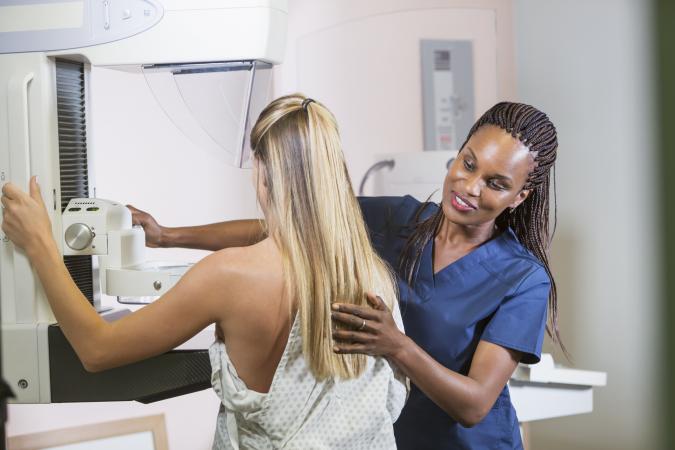Mammography
A mammogram is a low-dose x-ray picture of the breast. Mammograms can help save lives. They are the best primary screening tool to find breast cancer. Mammograms won’t find every cancer, but they can help find breast cancer at an early stage, before it is big enough to feel or cause symptoms. This can lead to early treatment, a range of treatment options, and better chances of survival. Women should ask their healthcare provider if and when a mammogram is right for them.
How FDA Helps You
FDA regulates the standards for mammography machines and training for the people who provide mammograms. All places that give mammograms in the U.S. must be certified under the Mammography Quality Standards Act (MQSA). FDA keeps a list of all certified places where you can get a mammogram.
FDA conducts outreach to raise awareness about the importance of mammograms for breast cancer screening. Check out these resources to help you learn the facts about mammograms, including the difference between 3D and 2D mammograms.
Know Before You Go
Follow these tips to help you prepare for your mammogram.
- Don’t wear deodorant, perfume, lotion or powder under your arms or on your breasts on the day of your exam. Foreign particles could show up in an x-ray.
- Let the staff know if you have breast implants. They may need to take more pictures than a regular mammogram.
- Bring prior mammograms or have them sent to the center if possible.
- Tell the clinic if you have physical disabilities that may make it hard for you to sit up, lift your arms, or hold your breath.
Thermograms are Not a Substitute for Mammograms
Thermograms produce an image that shows the patterns of heat and blood flow near the surface of the body. FDA has no evidence to support the claims that thermograms can replace mammograms and that thermography can find breast cancer years before it can be detected by mammography.
Get the facts about thermograms.
Nipple Aspirators are Not a Substitute for Mammograms
Nipple aspirate is a test in which a breast pump is used to collect fluid from a woman’s nipple to screen for abnormal and potentially cancerous cells. FDA has no evidence to support claims that nipple aspirate tests, when used on their own, are an effective screening tool for any medical condition, including the detection of breast cancer or other breast disease.
Get the facts about nipple aspirators.
Spread the Word
You can help encourage the women in your family or community to get regular mammograms. There are many ways that you can spread the word.
- NEW! Pink Ribbon Guide - Mammography Matters. Get resources and step-by-step instructions to plan, promote, launch and evaluate Pink Ribbon mammography awareness events in your community.
- Follow and share one of our mammography messages from Twitter and Pinterest.
Get the Facts about Mammograms
- Fact sheet -- Mammograms
- Fact sheet -- Mamografías
- Fact Sheet -- Mammograms in Korean, Tagalog, Haitian Creole and other languages
- Join the Pink Ribbon Mammography Awareness Program
- Get answers to common questions about Digital Mammography
- Mammography Quality Standards Act and Program
- Read about the Mammography Quality Standards Act (MQSA)
- Frequently Asked Questions About MQSA
Information from Other Government Agencies and Offices
- Free or Low Cost Mammograms
- Tips on Breast Cancer Screening for Women with Disabilities
- A Guide to Understanding Breast Changes
- Information on Breast Cancer


